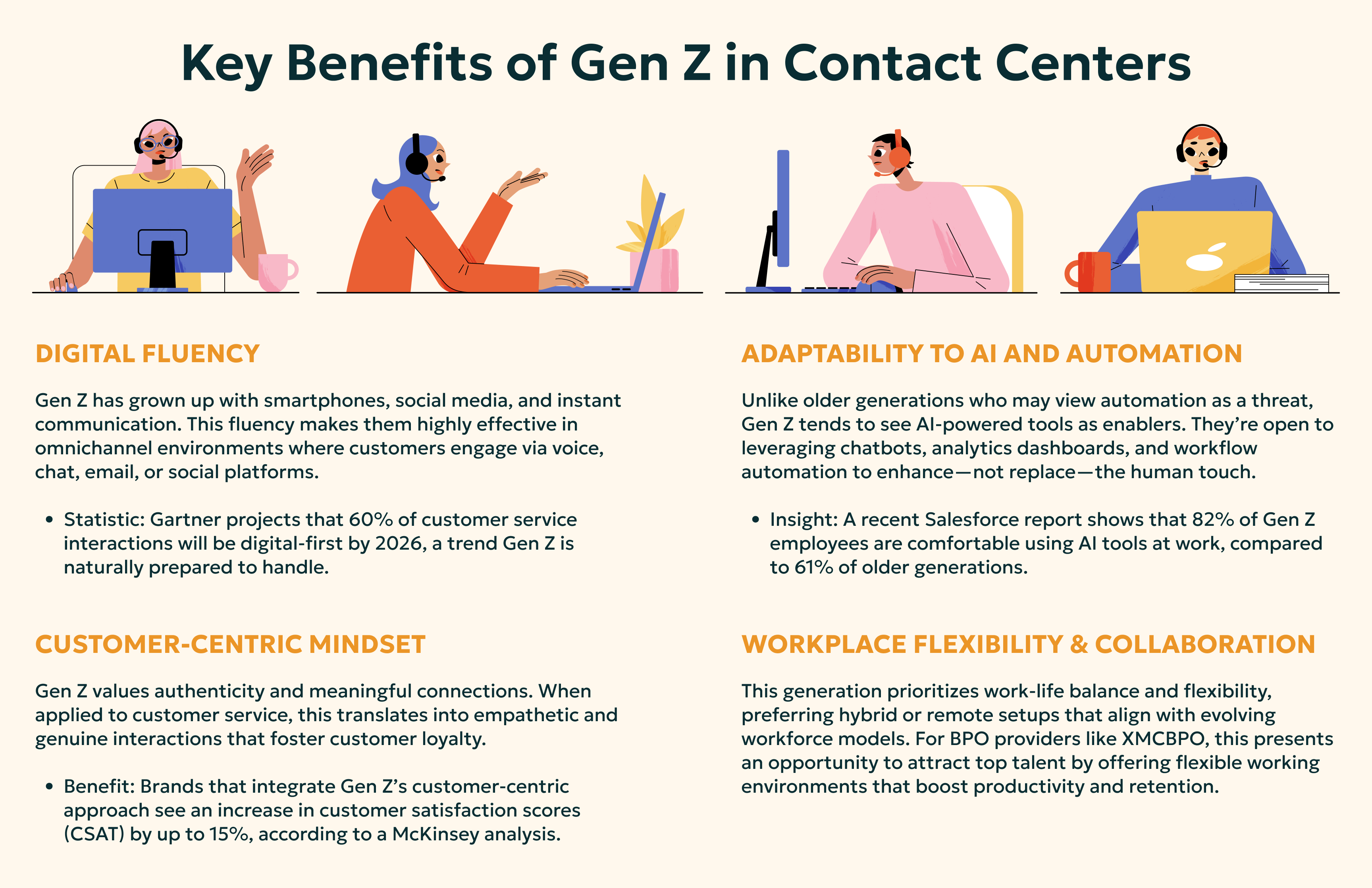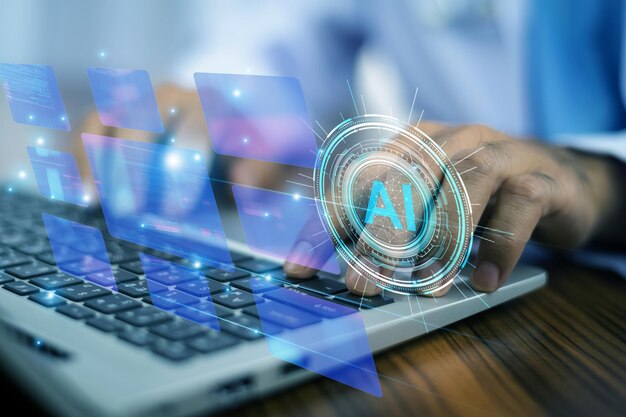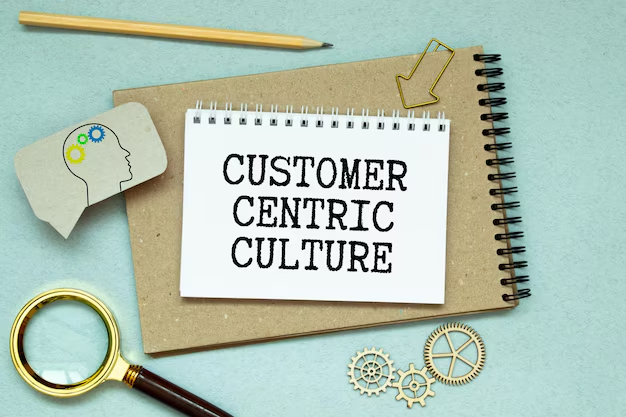The contact center industry has always evolved with technology, customer expectations, and workforce trends. Today, a new generation is taking the lead: Gen Z, the digital-native professionals born between 1997 and 2012. As they enter the workforce in large numbers, their unique skills, values, and working styles are reshaping how contact centers operate, perform, and deliver customer experience.
For companies like XMCBPO, embracing this generational shift isn’t just about filling roles—it’s about unlocking innovation, adaptability, and long-term growth.
The Rise of Gen Z in the Contact Center Industry
According to a 2024 Deloitte study, Gen Z is projected to make up 27% of the global workforce by 2025, a figure that will directly influence industries reliant on people-first interactions such as contact centers. With their comfort in using technology and preference for purpose-driven work, Gen Z employees are quickly redefining how service operations are managed.
In fact, 73% of Gen Z workers report being motivated by career growth and continuous learning, compared to 56% of millennials. This makes them ideal for roles that require adaptability and rapid upskilling—two critical needs in a contact center environment.


Key Benefits of Gen Z in Contact Centers
Digital Fluency
Gen Z has grown up with smartphones, social media, and instant communication. This fluency makes them highly effective in omnichannel environments where customers engage via voice, chat, email, or social platforms.
- Statistic: Gartner projects that 60% of customer service interactions will be digital-first by 2026, a trend Gen Z is naturally prepared to handle.

Adaptability to AI and Automation
Unlike older generations who may view automation as a threat, Gen Z tends to see AI-powered tools as enablers. They’re open to leveraging chatbots, analytics dashboards, and workflow automation to enhance—not replace—the human touch.
- Insight: A recent Salesforce report shows that 82% of Gen Z employees are comfortable using AI tools at work, compared to 61% of older generations.

Customer-Centric Mindset
Gen Z values authenticity and meaningful connections. When applied to customer service, this translates into empathetic and genuine interactions that foster customer loyalty.
- Benefit: Brands that integrate Gen Z’s customer-centric approach see an increase in customer satisfaction scores (CSAT) by up to 15%, according to a McKinsey analysis.

Workplace Flexibility & Collaboration
This generation prioritizes work-life balance and flexibility, preferring hybrid or remote setups that align with evolving workforce models. For BPO providers like XMCBPO, this presents an opportunity to attract top talent by offering flexible working environments that boost productivity and retention.
Analytics: The Measurable Impact of Gen Z in Contact Centers
Organizations that have already integrated Gen Z into their contact centers report measurable improvements:
- Reduced Average Handle Time (AHT): Gen Z’s comfort with multitasking and tech tools has been shown to cut handling times by up to 12%.
- Increased Employee Retention: Centers with Gen Z-focused engagement strategies report 18% higher retention rates compared to those without.
- Boost in Customer Experience Metrics: Gen Z’s empathy-driven service approach contributes to a 20% increase in Net Promoter Score (NPS) for early adopters.
Conclusion
The future of contact centers lies in the hands of Gen Z—a workforce that brings digital savvy, adaptability, and customer-centric values to an industry that thrives on innovation and human connection. For companies like XMCBPO, embracing this generational transformation is not just a workforce strategy—it’s a competitive advantage.
By creating environments that leverage Gen Z’s strengths, businesses can achieve higher efficiency, better customer satisfaction, and sustainable growth. The contact center of tomorrow is already here, and it’s being shaped by Gen Z today.
References
- Forbes. Gen-Z’s Are Redefining The Way They Want To Work
- Wired. To Keep Gen Z, Companies Need to Level Up
- Deloitte. Gen Zs and millennials at work: Pursuing a balance of money, meaning, and well-being
- Sprinklr. Top Call Center Statistics to Know [2025]
- ThriveSparrow. Understanding Gen Z in the Workplace: Challenges and Opportunities for Employers



